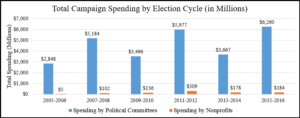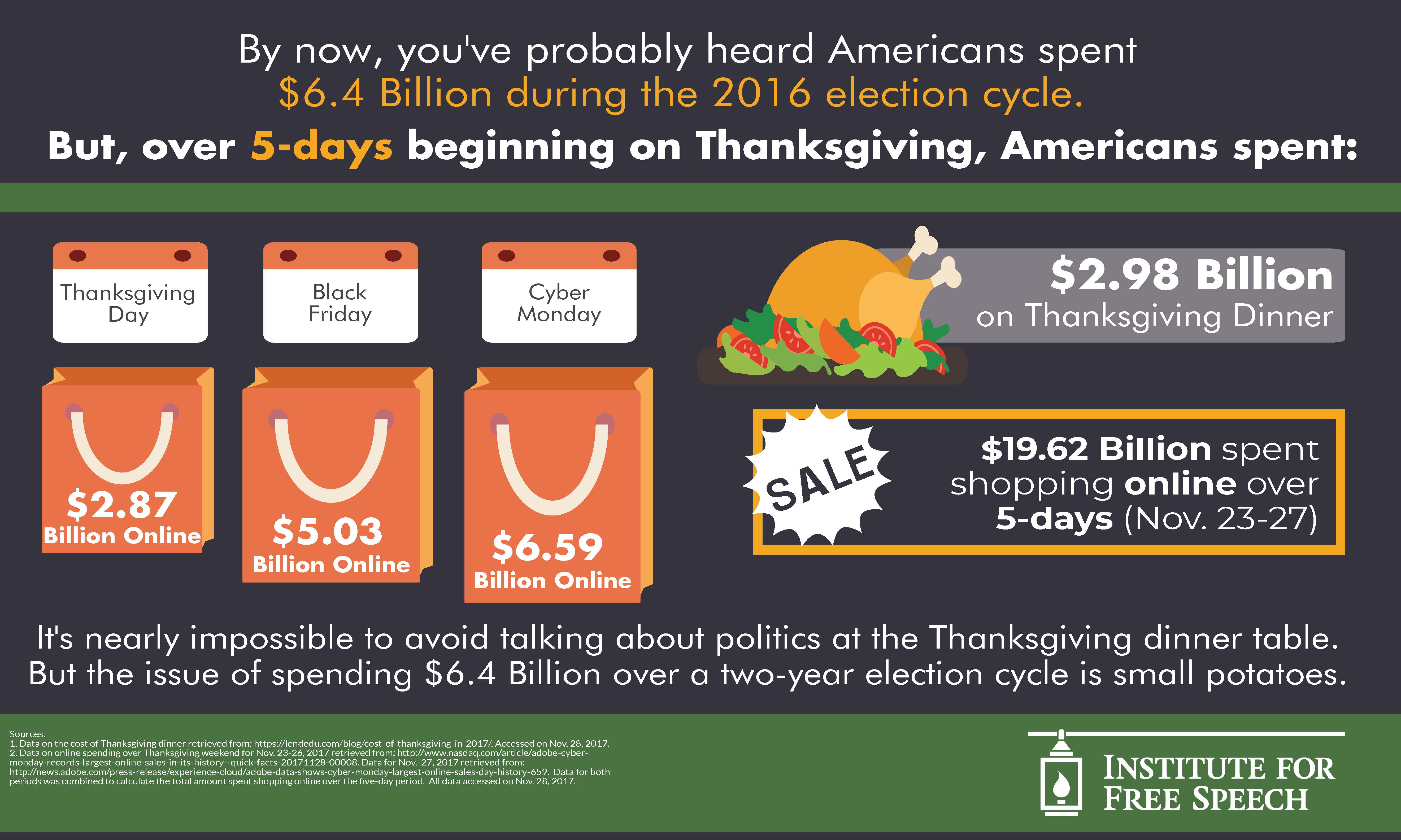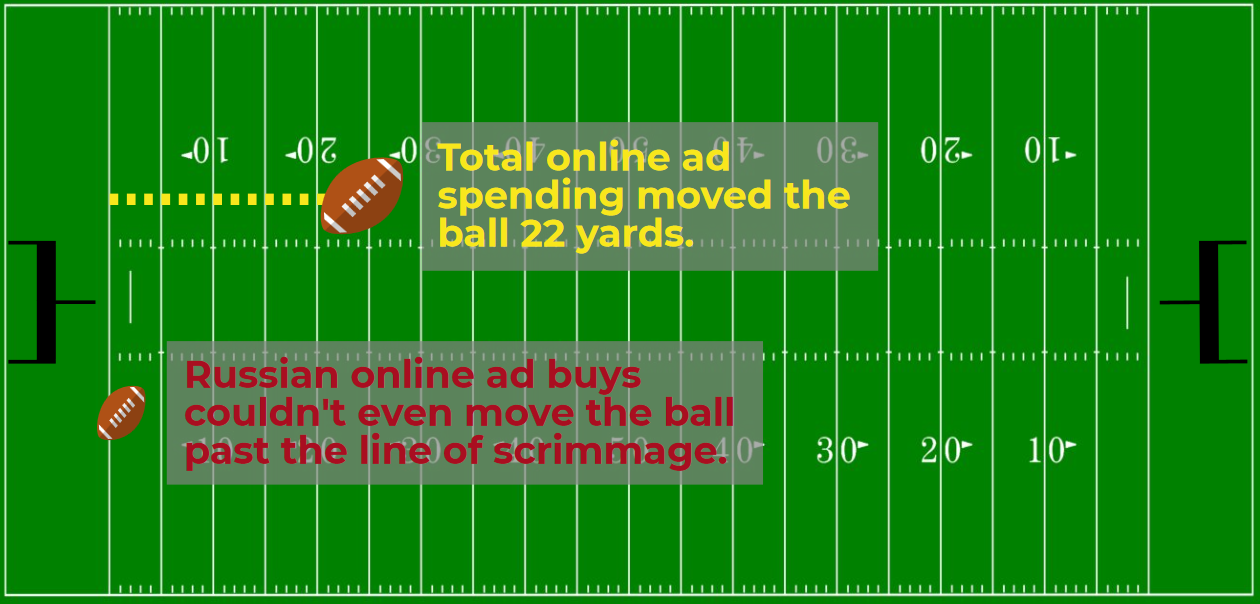Not every group that spends money on campaigns or candidate-related speech is a political committee. If that were so, only politicians, parties, and PACs would have a voice in election campaigns. In addition to political committees, nonprofit groups are permitted to engage in a limited amount of campaign spending. These groups are typically 501(c)(4) social welfare organizations, such as the League of Conservation Voters and National Rifle Association Institute for Legislative Action, 501(c)(5) labor unions, such as the American Federation of Teachers, and 501(c)(6) trade associations, such as the National Association of Realtors and the U.S. Chamber of Commerce.
Because political campaign activity is not their primary purpose, these groups are not required to shoulder the same regulatory burdens as political committees. One of these burdens is disclosure. Whereas political committees are required to report the names, home addresses, employers, and occupations of their individual donors to the government, those who give to nonprofits can do so privately unless they earmark their contribution for campaign-related speech. In addition to keeping compliance burdens manageable, this ensures that donors who wish to support a nonprofit’s general mission are not wrongly associated with its campaign-related speech, which may be a very small part of its operations.
Proponents of greater restrictions on political speech often use the pejorative term “dark money” to describe campaign spending by nonprofits. The term evokes an emotional, fearful reaction, and many of the statistics published on the topic mislead rather than enlighten. But how much “dark money” is there? How big of a role does it play? To help answer these questions, it is useful to compare campaign spending by political committees to spending by nonprofits.[1]


Spending by nonprofits is likely to remain a small portion of total political spending in the future. That’s because 501(c) organizations are prohibited by law from having political campaign activity as their primary purpose. As a result, donors who give to a 501(c) group know that most of their donations will be spent on non-political campaign activities. By contrast, a donor interested in election campaigns could guarantee 100% of her money would go to campaign advocacy if the funds were given to a super PAC.[6]
The sensational rhetoric common in discussions of “dark money” gives a false impression that nonprofits are a major source of campaign speech. In reality, nonprofits consistently account for less than 5% of political spending, and political committees (and media) continue to have the most prominent voices in elections. Allowing this small role for nonprofits doesn’t “drown out” candidates or undermine disclosure – it adds to the diversity of views necessary in a healthy democracy.
https://www.ifs.org/wp-content/uploads/2017/10/2017-05-08_IFS-Issue-Brief_Wachob_Putting-Dark-Money-In-Context.pdf
[1] Notably, political committees are considered nonprofits for tax purposes. However, they are distinct from 501(c) nonprofits because their primary purpose is political activity, and they are required to disclose the identities of donors who give over $200.
[2] This data was taken from the Center for Responsive Politics (CRP). In previous calculations of “dark money”, the Center for Competitive Politics typically relied on campaign spending data from the Federal Election Commission (FEC). However, the FEC did not begin publishing summaries of total campaign spending until the 2011-2012 election cycle. For the sake of consistency, this graph uses CRP data for both political committee and nonprofit spending in each election cycle. As a result, it may understate total spending and overstate the percentage of “dark money,” compared to official data maintained by the FEC. 2005-2016 total political committee spending figures can be obtained via the Center for Responsive Politics at: https://www.opensecrets.org/overview/cost.php. 2005-2016 total nonprofit or “dark money” spending figures can be obtained via the Center for Responsive Politics at: https://www.opensecrets.org/outsidespending/nonprof_summ.php.
[3] Ibid.
[4] Ibid.
[5] Massachusetts Citizens For Life (MCFL) v. Federal Election Commission, 479 U.S. 238 (1986).
[6] See Matt Nese, “Five Misconceptions about ‘Dark Money,’” Institute for Free Speech. Retrieved on May 3, 2017. Available at: https://www.ifs.org/wp-content/uploads/2015/04/2015-07-08_Two-Pager_Nese_Five-Misconceptions-About-Dark-Money.pdf (July 2015).














